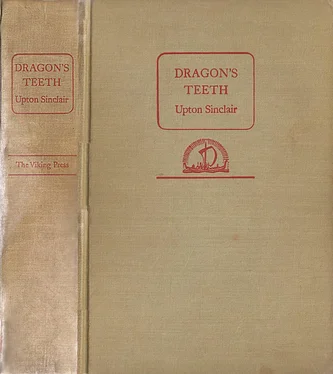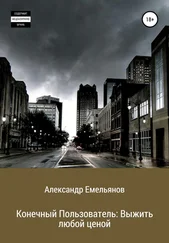Пользователь - o 3b3e7475144cf77c
Здесь есть возможность читать онлайн «Пользователь - o 3b3e7475144cf77c» весь текст электронной книги совершенно бесплатно (целиком полную версию без сокращений). В некоторых случаях можно слушать аудио, скачать через торрент в формате fb2 и присутствует краткое содержание. Жанр: Старинная литература, на русском языке. Описание произведения, (предисловие) а так же отзывы посетителей доступны на портале библиотеки ЛибКат.
- Название:o 3b3e7475144cf77c
- Автор:
- Жанр:
- Год:неизвестен
- ISBN:нет данных
- Рейтинг книги:4 / 5. Голосов: 1
-
Избранное:Добавить в избранное
- Отзывы:
-
Ваша оценка:
- 80
- 1
- 2
- 3
- 4
- 5
o 3b3e7475144cf77c: краткое содержание, описание и аннотация
Предлагаем к чтению аннотацию, описание, краткое содержание или предисловие (зависит от того, что написал сам автор книги «o 3b3e7475144cf77c»). Если вы не нашли необходимую информацию о книге — напишите в комментариях, мы постараемся отыскать её.
o 3b3e7475144cf77c — читать онлайн бесплатно полную книгу (весь текст) целиком
Ниже представлен текст книги, разбитый по страницам. Система сохранения места последней прочитанной страницы, позволяет с удобством читать онлайн бесплатно книгу «o 3b3e7475144cf77c», без необходимости каждый раз заново искать на чём Вы остановились. Поставьте закладку, и сможете в любой момент перейти на страницу, на которой закончили чтение.
Интервал:
Закладка:
confiscated, the people could either believe that or believe nothing. The foreigners, of course,
laughed; they knew that they weren't awed, and the mass meetings and distribution of boycott
leaflets went on. But the Nazi leaders chose to declare otherwise, and next day there was a
washing of windows throughout Germany, and "business as usual" became the motto for both
Aryans and non-Aryans.
IX
There were curious outgrowths of this anti-Semitic frenzy. An "Association of German
National Jews" was formed, and issued a manifesto saying that the Jews were being fairly
treated and there was no truth in the stories of atrocities; some leading Jews signed this, and
the name of Johannes Robin was among them. Perhaps he really believed it, who could say?
He had to read German newspapers, like everybody else; those foreign papers which reported
the atrocities were banned. Perhaps he considered that the outside boycotts would really do
more harm than good, and that the six hundred thousand native Jews in the Fatherland were
not in position to offer resistance to a hundred times as many Germans. The Jews had
survived through the centuries by bending like the willow instead of standing like the oak.
Johannes didn't mention the subject in his letters, either signed or unsigned. Was he a little
ashamed of what he did?
It seemed to an American that a man could hardly be happy living under such conditions.
Lanny wrote a carefully guarded letter to the effect that Hansi was giving important concerts
and Irma various social events; they would be delighted to have the family present. Johannes
replied that some business matters kept him from leaving just now; he bade them not to worry
about the new decrees forbidding anyone to leave Germany without special passports, for he
could get them for himself and family whenever he wished. He added that Germany was their
home and they all loved the German people. That was the right sort of letter for a Jew, and
maybe the statements were true, with a few qualifications.
The Nazis had learned a lesson from the boycott, even though they would never admit it. The
brass band stage of persecution was at an end, and they set to work to achieve their purpose
quietly. The weeding out of Jews, and of those married to Jews, went on rapidly. No Jew could
teach in any school or university in Germany; no Jewish lawyer could practice; no Jew could
hold any official post, down to the smallest clerkship. This meant tens of thousands of
positions for the rank and file Nazis, and was a way of keeping promises to them, much easier
than socializing industry or breaking up the great landed estates.
The unemployed intellectuals found work carrying on genealogical researches for the
millions of persons who desired to establish their ancestry. An extraordinary development—
there were persons who had an Aryan mother and a Jewish father, or an Aryan grandmother
and a Jewish grandfather, who instituted researches as to the morals of their female ancestors,
and established themselves as Aryans by proving themselves to be bastards! Before long the
Nazis discovered that there were some Jews who were useful, so there was officially
established a caste of "honorary Aryans." Truly it seemed that a great people had gone mad;
but it is a fact well known to alienists that you cannot convince a madman of his own
condition, and only make him madder by trying.
By one means or another it was conveyed to leading Jews that they had better resign from
directorships of corporations, and from executive positions which were desired by the nephews
or cousins of some Nazi official. Frequently the methods used were such that the Jew
committed suicide; and while these events were not reported in the press, word about them
spread by underground channels. That was the way with the terror; people disappeared, and
rumors started, and sometimes the rumors became worse than the reality. Old prisons and
state institutions, old army barracks which had stood empty since the Versailles treaty, were
turned into concentration camps and rapidly filled with men and women; motor trucks
brought new loads daily, until the total came near to a hundred thousand.
Lanny wrote again to say what a mistake his friends were making not to come and witness
Hansi's musical and Irma's social triumphs. This time Johannes's reply was that his business
cares were beginning to wear on him, and that his physicians advised a sea trip. He was
getting the Bessie Budd ready for another cruise, this time a real one; he wanted Hansi and
Bess to meet him at one of the northern French ports, and he hoped that the Budds would
come along— the whole family, Lanny and Irma, Mr. and Mrs. Dingle, Marceline and Baby
Frances, with as many governesses and nurses as they pleased. As before, the cruise would be
to whatever part of the world the Budd family preferred; Johannes suggested crossing the
Atlantic again and visiting Newcastle and Long Island; then, in the autumn, they might go
down to the West Indies, and perhaps through the Panama Canal to California, and if they
wished, to Honolulu and Japan, Bali, Java, India, Persia—all the romantic and scenic and
historic places they could think of. A university under Diesel power!
X
This made it necessary for Irma to come to a decision which she had postponed to the last
moment. Was she going to take the palace for another year? She had got used to it, and had a
competent staff well trained; also she was established as a hostess, and it seemed a shame to
lose all this momentum. But, on the other hand, money was growing scarcer and scarcer. The
dreadful depression—Lanny had shown her the calculations of an economist that it had cost
the United States half a dozen times the cost of the World War. Thanks to the Reconstruction
Finance Corporation, interest payments on industrial bonds were being met, but many of
Irma's "blue chip" stocks were paying no dividends, and she was telling her friends that she
was living on chocolate, biscuits, and Coca-Cola—meaning not that these were her diet, but
her dividends.
She had Shore Acres on her hands with its enormous overhead; she had had to cut down on
her mother, and the mother in turn had notified all the help that they might stay on and work
for their keep, but there would be no more salaries. Even so, the food bill was large, and the
taxes exorbitant—when were taxes not? Mrs. Barnes's letters conveyed to her daughter a sense
of near destitution.
"You don't really care very much for this palace, do you, Lanny?" So asked the distressed one,
lying in the pink satin splendor of the bed in which Madame de Maintenon was reputed to
have entertained the Sun King.
"You know, dear, I don't undertake to tell you how to spend your money."
"But I'm asking you."
"You know without asking. If you spend more money than you have, you're poor, no matter
what the amount is."
"Do you think if we come back to Paris after the depression, I'll be able to start as a hostess
again?"
"It depends entirely upon how much of your money you have managed to hold on to."
"Oh, Lanny, you're horrid!" exclaimed the hostess.
"You asked for it," he chuckled.
Nearly a year had passed since the Queen Mother had seen her grandchild, and that was
something to be taken into consideration. Her satisfaction would be boundless; and it would
be a pleasure to meet all those New York friends and hear the gossip. Lanny could stand it if it
Читать дальшеИнтервал:
Закладка:
Похожие книги на «o 3b3e7475144cf77c»
Представляем Вашему вниманию похожие книги на «o 3b3e7475144cf77c» списком для выбора. Мы отобрали схожую по названию и смыслу литературу в надежде предоставить читателям больше вариантов отыскать новые, интересные, ещё непрочитанные произведения.
Обсуждение, отзывы о книге «o 3b3e7475144cf77c» и просто собственные мнения читателей. Оставьте ваши комментарии, напишите, что Вы думаете о произведении, его смысле или главных героях. Укажите что конкретно понравилось, а что нет, и почему Вы так считаете.




